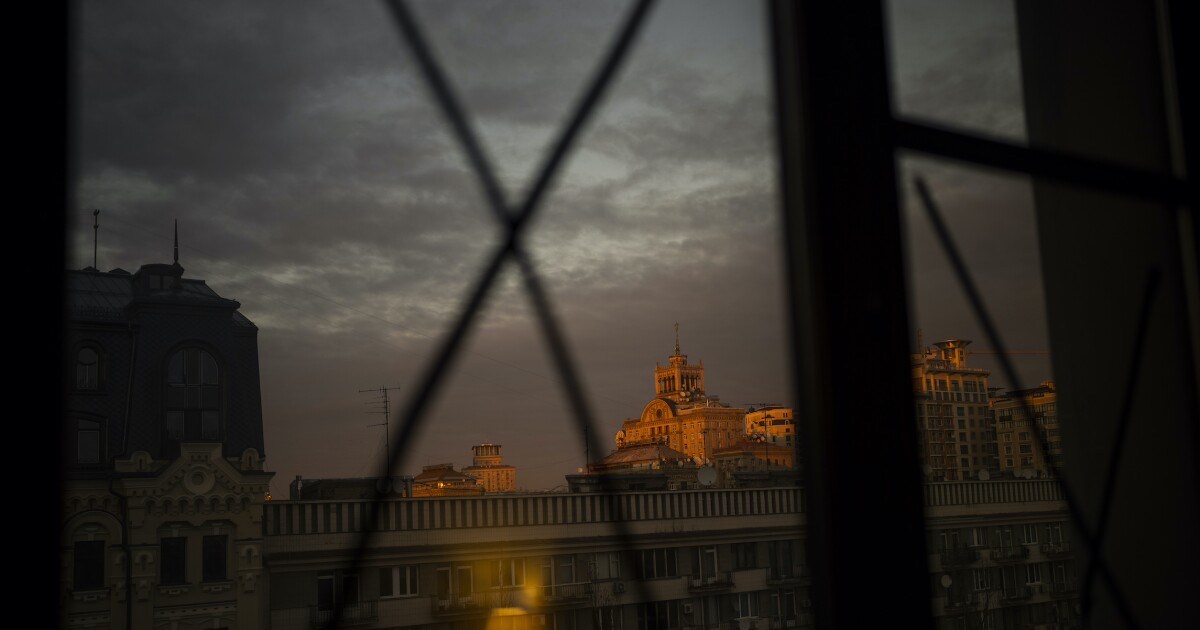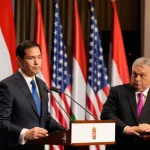

A new Russian missile barrage targeted at least seven Ukrainian cities on Tuesday after roughly two weeks where such attacks had slowed.
Strikes were reported in Kryvyi Rih, Rivne, Sumy, Poltava, Kharkiv, the capital of Kyiv, and there were warnings of missile attacks in Lviv. The regions include many areas of the country ranging from Rivne in the northwest to Sumy, a northern region that borders Russia, while Lviv is near the Polish border.
IRAN MAY PROVIDE RUSSIA WITH ADDITIONAL WEAPONS, INCLUDING MISSILES, IN UKRAINE
Russia’s military aerial attacks expand the scope of the war as they’re able to target cities across the country, while their troops on the front lines retreated over the weekend from Kherson, the only regional capital that Russian forces had captured and occupied, and they had in Kherson since the start of the war, which began last February.
“Russian missiles are killing people and ruining infrastructure across Ukraine right now. This is what Russia has to say on the issue of peace talks. Stop proposing Ukraine to accept Russian ultimatums! This terror can only be stopped with the strength of our weapons & principles,” Ukraine’s Foreign Minister Dmytro Kuleba said on social media, adding, “Russia is hitting peaceful Ukrainian cities with deadly missiles. Apartment buildings, energy infrastructure facilities are being hit. Looking forward to a principled reaction of [the G-20] Summit. And please avoid ‘calling on both sides.’ Take the side of people, not war criminals.”
Russia’s October barrage of rockets largely targeted Ukraine’s energy infrastructure, which Russian officials declared as legitimate military targets, even as it plunged civilians in cities across the country into blackouts without consistent access to potable water.
Ukrainian Prime Minister Denys Shmyhal said on Twitter that “Russian terrorists have once again shown their so-called willingness to negotiate today. Another massive missile attack during #G20Summit. Residential buildings were hit. They are trying to destroy energy infrastructure.”
Tuesday’s barrage came a day after Ukrainian President Volodymyr Zelensky outlined a 10-point plan for peace during a virtual address to global leaders gathered at the G-20 summit in Indonesia. Specifically, he said his country shouldn’t be asked to agree to “compromises with its conscience, sovereignty, territory, and independence,” though he said any deal would have to include a withdrawal of Russian forces from Ukrainian territory, compensation for damages, and the return of military and civilian personnel who were forcibly deported to Russia.
Zelensky also traveled to Kherson on Monday where he proclaimed it was the “beginning of the end of the war.”
In the Ukrainian president’s nightly address, he compared their victory in Kherson to the U.S. storming of Normandy on D-Day.
CLICK HERE TO READ MORE FROM THE WASHINGTON EXAMINER
“It is like, for example, D-Day — the landing of the Allies in Normandy. It was not yet a final point in the fight against evil, but it already determined the entire further course of events. This is exactly what we are feeling now. Now — when Kherson is free,” he said. “To liberate our entire land from the Russists, we still will have to fight for a while longer … To fight! However, if the victory will be ours in any case, and we are sure of it, then shouldn’t we try to implement our formula for peace to save thousands of lives and protect the world from further destabilizations?”
Tuesday’s attacks also came one day after a senior U.S. military official told reporters that the missile fire had “slowed down” since the start of November.







